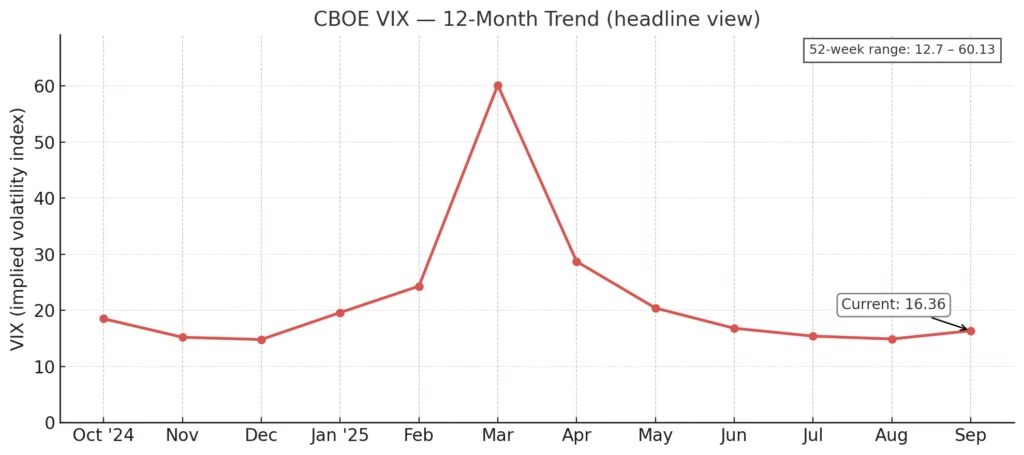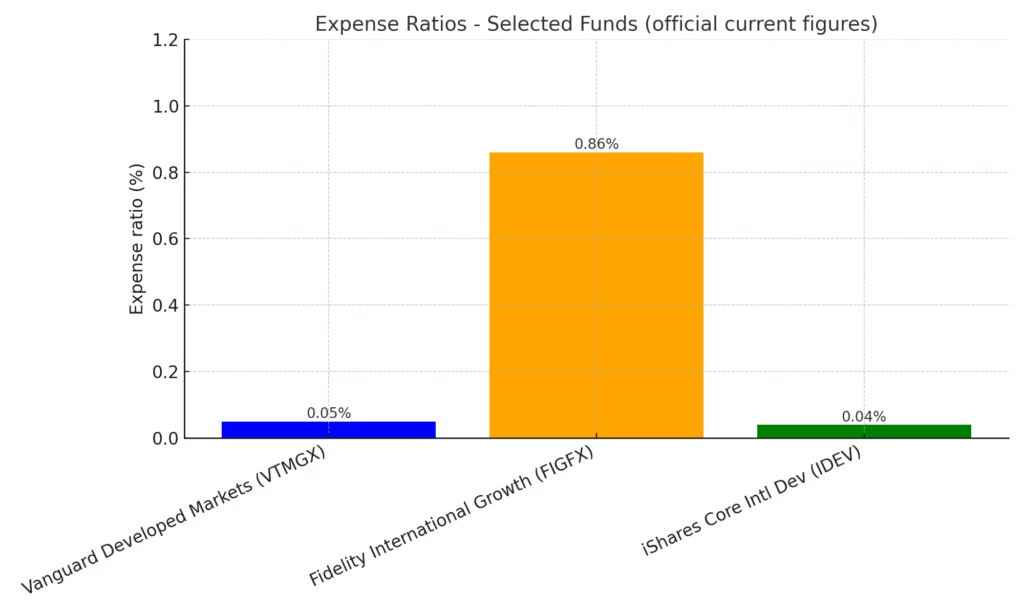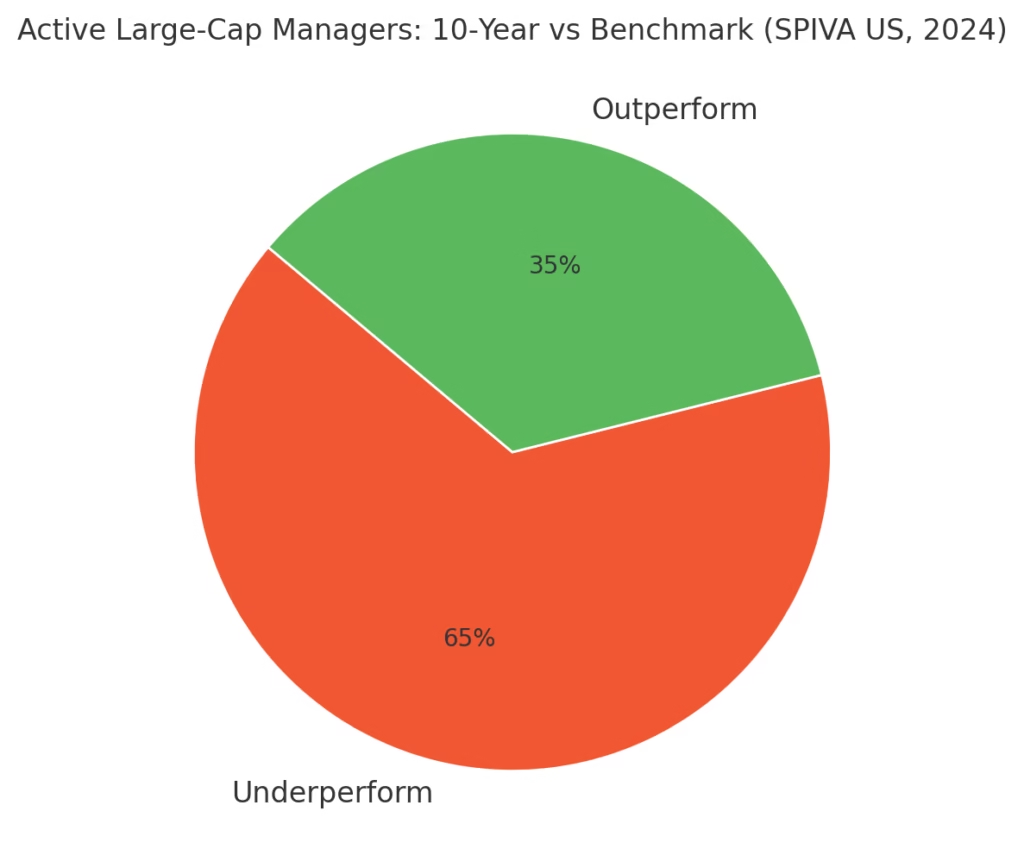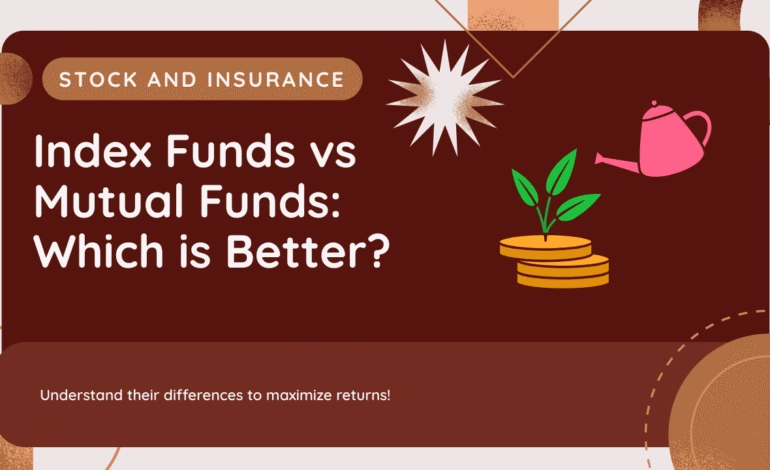
Why Market Volatility Scares Investors
Imagine this. You wake up, grab your coffee, and open your portfolio app. Suddenly, the green numbers you loved yesterday have turned red. Markets are sliding, headlines scream about inflation or a looming recession, and your heart skips a beat.
Sound familiar? You are not alone. Market volatility spares no one, from beginners taking their first steps in investing to seasoned professionals with decades of experience. But here is the good news. The very thing that causes sleepless nights for many investors can actually be managed smartly.
Every investor, no matter how experienced, has faced the nervous moments of checking their portfolio during a market dip. Red numbers, sharp declines, and news headlines about recessions or inflation create fear. For beginners, this fear often leads to panic selling. For seasoned investors, it sparks careful rebalancing.
But here is the truth: volatility is not only normal, it is inevitable. What matters is how you protect yourself against it. This is where Mutual Funds for Market Protection come into play.
Instead of investing directly in a few stocks, mutual funds pool money from thousands of investors and spread it across diversified assets. This diversification is like having multiple safety nets when the market wobbles. If one stock or sector falls, others can balance it out. That’s one of the biggest benefits of mutual funds in volatile markets.
If you’re curious about comparing fund types more deeply, check out our detailed guide on Index Funds or Mutual Funds which is better | Key Differences Every Investor Must Know in 2026 to see how these two strategies stack up for long-term investors.
Quick Question for You: Have you ever sold a stock out of fear during a dip, only to watch it bounce back later? Drop your experience in the comments. you are not alone.
Understanding Market Volatility in Simple Terms
Before we dive deeper, let’s break down market volatility.
Volatility refers to the rate at which prices of stocks, bonds, or other assets move up and down. A highly volatile market swings quickly and unpredictably, while a low-volatility market is relatively stable.
- Short-term volatility is caused by news events, economic reports, or sudden shocks (like interest rate hikes or geopolitical issues).
- Long-term volatility often follows economic cycles, recessions, and booms.
Here’s the key takeaway: volatility does not mean loss. It simply means fluctuation. Loss happens only when you sell at the wrong time.
And mutual funds help you avoid making those emotional decisions.
Why Mutual Funds Are Designed for Market Protection
Let’s break down the Benefits of Mutual Funds in Volatile Markets step by step:
1. Diversification Reduces Risk
Imagine putting all your money into one stock. If that stock falls by 30 percent, your wealth takes the same hit. But if you invest in a mutual fund holding 50 to 100 stocks across sectors, the risk is spread out. Some stocks may fall, others may rise, and the overall impact on your portfolio is softer.
For example:
- A technology stock may dip during an economic slowdown.
- But defensive stocks like healthcare or consumer staples may rise.
This balancing act is what keeps mutual funds relatively stable compared to direct stock investing.
2. Professional Fund Management
In times of market chaos, it helps to have experts at the wheel. Mutual funds are managed by professional fund managers who track markets, analyze sectors, and rebalance portfolios regularly.
Think of it like flying through turbulence. Would you rather be in a plane with an experienced pilot or trying to steer the plane yourself? Fund managers are your pilots during volatile times.
3. Systematic Investment Plans (SIPs) Average Out Volatility
One of the smartest ways to invest in mutual funds is through a Systematic Investment Plan (SIP). With SIPs, you invest a fixed amount every month, regardless of market conditions.
Here’s why this works during volatility:
- When markets are high, your SIP buys fewer units.
- When markets are low, your SIP buys more units.
This strategy, called dollar-cost averaging, helps smoothen the impact of market ups and downs over time.
To understand more about structured investing, check out our detailed blog on Wealth Building Strategies in Your 30s.
Mini Quiz for you:
If you invest $500 every month in a mutual fund, and the market falls 20 percent in one year, do you lose money instantly? Or do you buy more units at a cheaper price and wait for recovery? Answer in the comments.

4. Access to Different Asset Classes
Volatility doesn’t just hit stocks. Sometimes bonds perform better, other times commodities like gold shine. Many mutual funds give investors exposure to a mix of assets such as equities, bonds, and even international markets. This multi asset allocation acts as a cushion during turbulent times.
Example:
- In 2008, when stock markets crashed globally, bond-heavy funds performed better.
- In 2020, during the pandemic crash, funds with gold exposure provided stability.
This flexibility is a hidden advantage of mutual funds for market protection.
A Real-World Example: 2008 vs 2020
Let’s compare two historic events:
- 2008 Global Financial Crisis: Many stock-heavy portfolios lost 40 to 50 percent of value. But investors in balanced mutual funds (with bonds and equities) saw smaller declines, around 20 to 25 percent, and recovered faster.
- 2020 COVID-19 Market Crash: Stock indices fell by over 30 percent in just a month. But mutual funds with diversified holdings and SIP investors who kept investing during the fall benefited greatly from the rebound in 2021.
This shows that while volatility hurts in the short term, mutual funds build resilience over the long term.
According to Morningstar Research, diversified mutual funds consistently demonstrate resilience compared to single-stock portfolios.
Mutual Funds vs Other Investments During Volatility
When markets swing wildly, every investor wonders: “Am I in the right place?” To answer that, let’s compare mutual funds with other common investment vehicles.
Mutual Funds vs Direct Stocks
- Direct Stocks: Investing directly in individual stocks can bring high returns, but also carries higher risk. If you owned only airline stocks in 2020, your portfolio could have been wiped out when the pandemic hit.
- Mutual Funds: By holding a basket of stocks across industries, mutual funds reduce that concentration risk. Even if one sector struggles, others may perform well, cushioning your overall portfolio.
Mutual Funds vs ETFs
Exchange-Traded Funds (ETFs) are close cousins of mutual funds. They are low-cost, diversified, and trade like stocks. However, ETFs are passively managed and do not offer the same professional oversight. Mutual funds, especially actively managed ones, may adjust strategies during turbulence, which can benefit investors who prefer guided protection.
If you’re curious about choosing between low-cost options, our blog on Low-Cost Mutual Funds for Developed Market Growth 2026 provides a deeper breakdown.
Mutual Funds vs Fixed Deposits or Bonds
- Fixed Deposits/Bonds: Safe but limited returns. During inflation, their real value drops.
- Mutual Funds: Especially balanced or debt-oriented funds, can offer better risk-adjusted returns than plain fixed deposits while still being relatively safer than equities.
Question: If you had to pick between a single stock, an ETF, or a mutual fund during a market crash, which would you trust most? Share your choice in the comments.
Strategies Mutual Funds Use to Protect Investors
Fund managers don’t just sit back during volatile markets. They employ multiple strategies to shield investors’ money. Let’s look at some key ones.
1. Diversification Across Asset Classes
A balanced mutual fund might hold equities, bonds, and even gold. When equities fall, bonds or gold may rise, reducing portfolio swings.
2. Sector Rotation
Skilled fund managers shift exposure from vulnerable sectors to resilient ones. For example, moving from cyclical industries (like automobiles) to defensive sectors (like healthcare or utilities) during downturns.
3. Cash Allocation
Sometimes holding a portion of the portfolio in cash helps protect against heavy losses. This cash can later be deployed when valuations are attractive.
4. Hedging with Derivatives
Some mutual funds use futures or options as a shield against sharp market moves. Though not common in all funds, it is a valuable tool for advanced fund strategies.
Why SIPs Work as Shock Absorbers
We briefly touched on Systematic Investment Plans (SIPs) earlier. Let’s expand on why they are so powerful during volatility.
Imagine two investors:
- Investor A puts in $12,000 as a lump sum at the start of 2020, right before the COVID crash.
- Investor B invests $1,000 per month across the year in a mutual fund.
Result:
- Investor A saw an immediate decline and had to wait longer to recover.
- Investor B bought more units during the crash at lower prices and recovered faster as markets rebounded.
This demonstrates the power of SIPs as automatic volatility managers.
Question : Have you started an SIP yet? If not, what’s holding you back?
Real-World Data: Volatility and Mutual Fund Resilience
According to Morningstar reports, US-based diversified equity mutual funds recovered 25 to 30 percent faster than individual stock portfolios after the 2008 crisis. Similarly, Indian SIP investors who stayed invested during the 2020 pandemic saw average returns of 12 to 14 percent annually by 2022, compared to lump-sum investors at 8 to 9 percent.
The Benefits of Mutual Funds in Volatile Markets are not just theoretical. They are backed by data.

Practical Tips for Investors Using Mutual Funds for Market Protection
Investing in mutual funds is not just about buying units and waiting for the market to behave. The way you approach mutual fund investing can significantly impact how well they protect you during volatility. Here are some actionable tips.
Choose Funds That Match Your Risk Profile
If you are young and have a long investment horizon, equity-oriented mutual funds may suit you because they deliver higher returns over time despite short-term fluctuations. If you are closer to retirement, balanced funds or debt funds may be better since they are designed to reduce exposure to market shocks.
Stick to Your Investment Plan
Volatility often tempts investors to exit when markets fall and re-enter when they rise. This behavior is known as panic selling and it destroys long-term gains. Mutual funds work best when you stay consistent, particularly with systematic investment plans that average out the highs and lows.
Diversify Across Fund Categories
Even within mutual funds, diversification is key. For example, an investor may hold large-cap funds for stability, mid-cap funds for growth potential, and debt funds for protection. By blending categories, you minimize the risk of being overly dependent on one asset class.
Monitor But Do Not Overreact
Review your mutual fund portfolio once or twice a year. Reacting to every short-term dip by switching funds or redeeming units is counterproductive. Professional fund managers already adjust holdings to adapt to market conditions, so your best move is often patience.
Common Mistakes to Avoid in Volatile Markets
Many investors make avoidable errors that reduce the benefits of mutual funds during volatility. Being aware of these mistakes will help you stay ahead.
One mistake is chasing past performance. Just because a mutual fund performed well last year does not guarantee it will do so again. Instead, evaluate consistency over at least five to ten years.
Another mistake is stopping SIPs during downturns. In reality, downturns are when SIPs are most effective since you accumulate more units at lower prices. Halting them means missing out on the rebound gains.
A third mistake is ignoring costs. Some investors overlook expense ratios, assuming all funds are similar. In the long run, even a small difference in fees can have a large impact on your final returns.
Finally, many investors forget to align mutual funds with personal goals. A fund that is right for a long-term retirement plan may not be suitable for short-term objectives like buying a house in three years. Matching the fund type with the purpose of investment ensures better protection against market swings.

Stop…stop…stop..
Let us pause for a quick question. If the stock market fell by 20 percent tomorrow, would you prefer to hold on to your mutual fund investments, buy more, or sell everything? Think about your answer and share it in the comments. By engaging in these reflections, you will better understand your own investment psychology.
Long-Term Benefits of Mutual Funds in Volatile Markets
Despite the short-term ups and downs, mutual funds are designed with resilience in mind. Over decades, they reward investors with steady growth, disciplined investing, and peace of mind. The benefits of mutual funds in volatile markets go beyond just numbers. They help investors avoid emotional decisions, they promote systematic saving, and they provide access to professional expertise that individual investors cannot easily replicate.
Consider an investor who began investing in 2008 during the global financial crisis. Markets dropped sharply, but those who stayed invested through mutual funds saw their portfolios more than recover in the following decade. Those who panicked and sold missed out on one of the strongest bull runs in history.
My Final Thoughts
Mutual funds are not a magic shield against market volatility, but they are one of the most effective tools available to average investors. By combining diversification, professional management, systematic investing, and the discipline of long-term thinking, they protect you from the worst impacts of market swings while still giving you the chance to grow wealth steadily.
key takeaway from this blog: do not fear volatility. Embrace it with the right mutual funds, and let it work in your favor. Market fluctuations are temporary, but the benefits of mutual funds in volatile markets can last a lifetime.



